#ultimate african experience
Text
Fatherland – Black Creative Stars Accelerator
The Black Creative Stars is aimed at empowering young black people with the opportunity to Learn, Create, Distribute and Monetize afrocentric contents across the global digital entertainment landscape. We are committed to connecting young people passionate about the arts with mentorship and tools in understanding creativity, innovation and entrepreneurship.
#Black Creative Stars#young black people with the opportunity#Monetize afrocentric contents#connecting young people passionate#Black Creative Stars Accelerator#Fatherland#black people with the opportunity#global digital entertainment landscape#ultimate african experience#black young opportunity
2 notes
·
View notes
Text
Discover the Ultimate Safari Experience with African Luxury Safari

Experience our Luxury Safari tours Africa that offer you an opportunity to explore the immense biodiversity in an All inclusive African Safari vacations experience. Our Safaris are handcrafted by some of the best African Safari consultants.
Website:https://www.africanluxurysafari.com/
Phone:(+254) 732 500 948
0 notes
Text
Fatherland Atlanta - Enjoy the Ultimate African Experience
Fatherland Atlanta is a mission driven African creative global enterprise created to fulfil millions of people’s economic, recreational, educational, and entertainment needs by being a global community hub, cultural, art, faith, and tourist destination.
#African communities#enjoy the ultimate African experience#community hub#cultural#art#faith#Teaching for the African context#african restaurant atlanta#best african food atlanta
1 note
·
View note
Text
Identifying as.
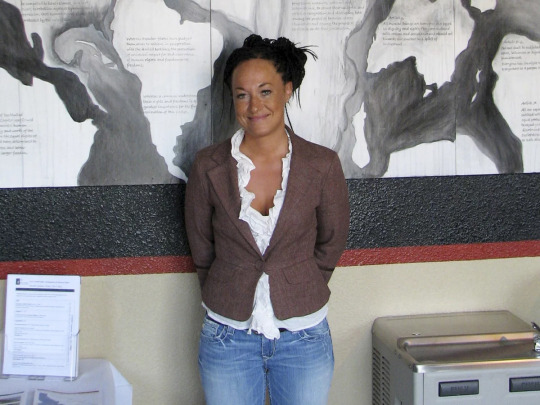
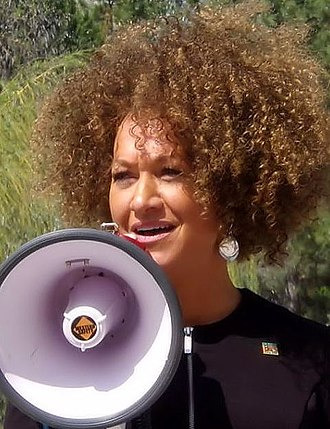
This is Rachel Dolezal, who legally changed her name to Nkechi Amare Diallo. Dolezal is a white woman who identifies as black and insists that she is transracial. Growing up, her religious white parents adopted four black babies, claiming that they "saved them from being aborted", and routinely delivered strict punishments to their kids including Dolezal. Dolezal does not seem to have a good relationship with her parents and, based on interviews, wanted to distance herself from them and distance herself from rural white culture.
"I've never questioned being a girl or woman, for example, but whiteness has always felt foreign to me, for as long as I can remember. I didn't choose to feel this way or be this way, I just am. What other choice is there than to be exactly who we are?"
She apparently "passed as black" for several years before her parents came out and said that she was white and is identifying as a black woman, and she was asked in a TV interview if she was African American and responded with "I don't understand the question". She taught Africana Studies at Eastern Washington University. She crafted a fake story in growing up as black and has argued that she experiences race-based related hate crimes. She darkens her skin and gets perms and started using hair products she observed her adopted black sibling to use. She lied about her father being black and lied that her black adopted brother was her son.
I hope that as details of Dolezal's story are read about, we are able to understand that tanning white skin does not make someone a black person, that blackface is wrong and racist. I hope we recognize that what makes someone black isn't a collection of racial stereotypes, isn't based on feeling a kinship with black people more than with white people, and that being black isn't based on not feeling a connection with white culture. I hope we understand that a black person cannot identify out of racial oppression, and that a white person cannot identify out of white privilege.

Jewel Shuping, age 38 now, was born healthy but dreamed of being blind since age 13. She stated her mother would tell stories about finding her walking down dark hallways at age 3, and mentioned that by age 6 the thought of being blind comforted her. When she was a teenager, Shuping bought a white cane and learned to read braille, becoming fluent in it by age 20.
She claims to have asked a psychologist to pour bleach in her eyes so she could fulfill her lifelong dream of being blind, and that the psychologist "understood her" and agreed to do so after giving her numbing eye drops to help with the pain (which was not ultimately helpful). She deliberately waited to seek medical attention so doctors were unable to save her eyesight. Gradually, over the course of six months, she became blind.
What Shuping has is considered a real mental health condition called Body Integrity Identity Disorder (BIID), a rare condition in which people who are born without disabilities believe with conviction that the should be disabled. There is another name for this in political activist circles, termed "transableism".
"I went blind on purpose, but I don't feel it was a choice."
Several other people with BIID are pretending to be paralyzed to use wheelchairs, with many not being driven to the point of causing harm to themselves to become disabled but instead living full lives faking being disabled.
I hope that as details of the stories of people pretending to be disabled are read about, we are able to understand that feeling like oneself should be disabled is an incredibly serious mental health condition and does not really mean that a person is "disabled inside". I hope we recognize that identifying as disabled does not make someone disabled, and that feeling a kinship with disabled people or a comfort in the thought of being disabled does not mean a person truly is or should become disabled. I hope we understand how people with mental health disorders claiming to be disabled can place further strain on resources and accommodations provided to disabled people. I hope we understand that inflicting pain, disfigurement, or physical altercations on healthy people to "help them physically match how they feel" is an inhumane way to treat a mental health condition.

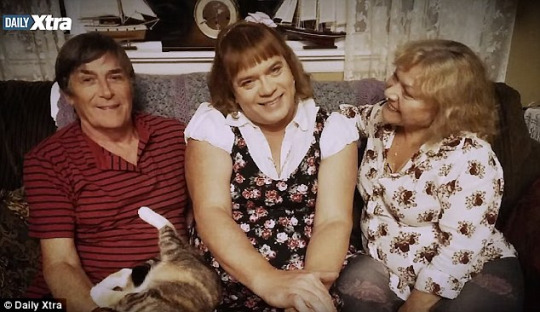
Paul Wolscht, who changed his name to Stefonknee Wolscht, was married to a woman for over 20 years and fathered 7 children before deciding to live life identifying as a six year old little girl. Living as a six year old little girl allows Wolscht to escape depression and suicidal thoughts because Wolscht gets to now play - even when in jail in solitary confinement for nine days for an undisclosed reason.
“If I’m six-years-old, I don’t have to think about adult stuff.”
Wolscht still drives and drinks coffee, but does so feeling and identifying as a six year old.

Emile Ratelband, age 69, petitioned the courts to allow him to change his age to 20 years younger because he "does not feel" 69 years old. Ratelband has argued that he did not feel comfortable with his date of birth, that age 69 did not accurately reflect his mental state, and that at age 69 he experiences limits.
“When I’m 69, I am limited. If I’m 49, then I can buy a new house, drive a different car,” he said. “I can take up more work. When I’m on Tinder and it says I’m 69, I don’t get an answer. When I’m 49, with the face I have, I will be in a luxurious position.”
Ratelband even asserted that doctors have told him he has the body of a man 20 years younger, and he said that he was willing to renounce his right to a pension. He argues that if people are able to legally change their sex on documents, there is no reason why he should not be able to change his age.
I hope that as we read these stories of people identifying as a different age, we are able to understand that feeling like you are 20 years younger or 40 years younger does not really make you that age. I hope that we understand that even though identifying as a different age might help avoid suicidal thoughts, being discriminated against on dating apps, or denied resources, it does not really change biologically what is. I hope we understand that there are also broader societal and legal consequences to being able to legally change one's age. That an adult might identify as a certain age to trick kids into trusting them so they can sexually abuse them, and/or that allowing an adult to legally consider themselves a different age would make it easier for adult predators to gain legal access to kids in environments in which they would normally be socially and legally discouraged from being in.
#trans#trans identity#transgender#trans pride#trans people#LGBTQ#lgbtq community#gender#transage#transabled#transracial#racism#ageism#sexism#ableism#disability rights#gay rights#LGB#women's rights#elder rights#mental health
834 notes
·
View notes
Text
"The Western preoccupation with biology continues to generate constructions of 'new biologies' even as some of the old biological assumptions are being dislodged. In fact, in the Western experience, social construction and biological determinism have been two sides of the same coin, since both ideas continue to reinforce each other. When social categories like gender are constructed, new biologies of difference can be invented. When biological interpretations are found to be compelling, social categories do derive their legitimacy and power from biology. In short, the social and the biological feed on each other. ... Ultimately, the most important point is not that gender is socially constructed but the extent to which biology itself is socially constructed and therefore inseparable from the social.
The way in which the conceptual categories sex and gender functioned in feminist discourse was based on the assumption that biological and social conceptions could be separated and applied universally. Thus sex was presented as the natural category and gender as the social construction of the natural. But, subsequently, it became apparent that even sex has elements of construction. In many feminist writings thereafter, sex has served as the base and gender as the superstructure. In spite of all efforts to separate the two, the distinction between sex and gender is a red herring. In Western conceptualization, gender cannot exist without sex since the body sits squarely at the base of both categories. Despite the preeminence of feminist social constructionism, which claims a social deterministic approach to society, biological foundationalism, if not reductionism, is still at the center of gender discourses, just as it is at the center of all other discussions of society in the West.
... The potential value of Western feminist social constructionism remains, therefore, largely unfulfilled, because feminism, like most other Western theoretical frameworks for interpreting the social world, cannot get away from the prism of biology that necessarily perceives social hierarchies as natural. Consequently, in cross-cultural gender studies, theorists impose Western categories on non-Western cultures and then project such categories as natural. The way in which dissimilar constructions of the social world in other cultures are used as 'evidence' for the constructedness of gender and the insistence that these cross-cultural constructions are gender categories as they operate in the West nullify the alternatives offered by the non-Western cultures and undermine the claim that gender is a social construction."
Oyèrónkẹ́ Oyěwùmí, The Invention of Women: Making an African Sense of Western Gender Discourses (1997)
167 notes
·
View notes
Text
Things People Seem to Forget About Steve Rogers (aka the past is complex)
Things in the future didn't happen in a vacuum, and while Steve missed a lot of stuff while he was in the ice, he would have seen the roots of things like the Civil Rights, Women's Rights and even LGBTQ+ Rights movements in his time.
While I'm sure Steve encountered a lot of people expecting certain right-wing behaviours from him, due to his birth year and the things he missed in the ice, this doesn't mean he would act that way—even right out of the ice.
But first lets take a look at the things Steve missed and see what he did in fact know:
The atom bomb. Steve never saw the atomic fallout, but what did he see? Hydra bombs literally being flown to his home city. There is also a possibility that as a specialty team, he learned about the German Nuclear Program during the war. His unit was tied to the Strategic Science Reserve, so I wouldn't be surprised if between that, and Hydra's bomb initiatives, Steve was well aware of the potential of a bomb threat. I doubt Steve has clearance to know about the Manhattan project, and I think he would be horrified to learn about the impact of the atom bomb on Japan (especially since he essentially thwarted the same thing from happening to New York) but majorly powerful bombs would not surprise him.
• The Cold War. Steve may not have experience the Cold War, but he grew up surrounded by the outcome of the First World War after the Communist take over of Russia. The debates surrounding Communism, Socialism, and Capitalism aren't new. Steve would have grown up with them and would probably be familiar with American pro-capitalist, anti-communist rhetoric. But would he agree?
Here's some things we know about Steve: He's an artist, he grew up during the Depression which was heavily mitigated by socialist measures, he grew up poor, he grew up disabled. As an artist Steve would be well aware of the debates between the political movements, and with his background, and the success of Roosevelt's New Deal reforms, it would not surprise me if Steve leaned more towards the Socialist side of the scale.
All this to say: Steve would not be unfamiliar with the tension between Russia and the USA. Especially since even though they were allies during the war, there were already concerns that the USSR wasn't so much 'liberating' the countries they drove Germany out of, as putting them under new management.
Steve would be familiar with the tensions underlying the Cold War, and his background might lead him to have a critical view of some of the pro-Capitalist propaganda that came out during the Cold War. While I don't think Steve would approve of Russia's methods and the ultimate outcome of Communism there, I don't think he would approve of the Red Scare Witch Hunt that happened in the States either.
• Civil Rights Movement. While Steve missed the major changes that occurred during the 50s and 60s, he would not be unfamiliar with movements for equality. Steve would also not be unaware of the inequality that minorities faced in his country.
For example:
National Association for the Advancement of Colored People (NAACP) was established in 1909 and is still run today. The NAACP fought and fights against discrimination and advocates for equality.
In the 30s President Roosevelt responded to "to charges that many blacks were the "last hired and first fired," [his administration] instituted changes that enabled people of all races to obtain needed job training and employment. These programs brought public works employment opportunities to African Americans, especially in the North" (Link)
"The first precedent-setting local and state level court cases to desegregate Mexican and African American schooling were decided during [the late 1930s]" (Link)
In 1941 thousands of Black Americans threatened to march on Washington for equal employments rights which pushed Roosevelt to issue an executive order that "opened national defense jobs and other government jobs to all Americans regardless of race, creed, color or national origin." (Link)
The Double Victory or Double V Campaign during the war was an explicit campaign to win the war against fascism in Europe and the war against racism as home.
All this to say, Steve would not be unfamiliar with many of the issues tackled during the Civil Rights Movement of the 50s and 60s.
Not only that, but Steve led a multi-racial special unit during the war during a time of active army segregation. Not only does he have a Black man on his team, but also a Japanese man. This would have most definitely led to backlash from higher command as well as discrimination from other units against Jones and Morita. Steve and the entire Howling Commandos would be explicitly aware of prejudice against two of their members and likely had to fight for them many times.
• Anything space travel. It's true Steve wouldn't know anything about attempts to reach the moon. But there were still several space discoveries he could know about, especially since he and Bucky are clearly interested in scientific discoveries, considering how they went to the Stark Exbo before Bucky shipped out.
Some discoveries:
Hubble's Law: In 1929 Hubble published evidence for an ever expanding universe, and thus provided evidence of the Big Bang theory.
1930: Discovery of Pluto (makes me chuckle to think this is a relatively new discovery for Steve and he wakes up to find it is a dwarf-planet now. You think Millennials are protective of Pluto? I think Steve would be too 😆.)
1937: "the first intimation that most matter in the universe is `dark matter'"
Personally I think Steve would be absolutely amazed by the advances in space travel.
• Women's Rights. Like with Civil Rights, while Steve may have missed the large movements during the 50s and 60s, he was around for the early movements. The 60s movement is called Second Wave Feminism for a reason. This is because there was already many pushes for women equality in Steve's time.
For example:
1920: White women win the right to vote. This means Steve's mother first voted in his lifetime. I feel this alone would make Steve heavily aware of inequality faced by women. (As a side note I feel that Sarah always emphasized voting to Steve since it was such a major development in her lifetime.)
Also in the 20s the Flapper trend rose, along with hemlines. Women's skirts were shorter and they smoked and drank with men. Middle-class and working-class women also worked outside of the home. The 1920s-1930s 'modern' woman is very different from the Victorian vision of a woman in petticoats and skirts.
Early Birth Control movement: Was "initiated by a public health nurse, Margaret Sanger, just as the suffrage drive was nearing its victory. The idea of woman’s right to control her own body, and especially to control her own reproduction and sexuality, added a visionary new dimension to the ideas of women’s emancipation. This movement not only endorsed educating women about existing birth control methods. It also spread the conviction that meaningful freedom for modern women meant they must be able to decide for themselves whether they would become mothers, and when."
1936: A Supreme Court decision declassified birth control information as obscene. Legalised doctor-prescribed contraceptives.
WW2 Watershed: Women serve in the army and work factory jobs. The government establishes universal childcare while women work.
Women also wore pants and form fitting clothes to work in factories. We also see Peggy wearing pants during the last assault on Hydra. While Steve may need to get used to modern fashion, he would already be familiar with the 'morale outrage' over women's clothes in his time, and probably try to manage his surprise in private as well as possible.
• LGBTQ+ Rights. Like with the rest of the equality movements, LGBTQ+ rights movements also started before the late 1900s.
1924: "Society for Human Rights is founded by Henry Gerber in Chicago. The society is the first gay rights organization as well as the oldest documented in America." This organisation was broken up soon after founding due to arrests, but it published "the first American publication for homosexuals, Friendship and Freedom."
In the 1920s and 30s "the gay and lesbian movement started taking shape. Social analysts began rejecting prior medical definitions of "inversion" or "homosexuality" as deviant.
Communities of men and women with same-sex affiliations began to grow in urban areas. Their right to gather in public places such as bars was tenuous, and police raids and harassment were common." (Link)
WW2 Watershed: While many LGBTQ people lived in rural areas or outside 'queer neighbourhoods' the war brought people from all backgrounds together. "As with most young soldiers, many had never left their homes before, and the war provided them an opportunity to find community, camaraderie, and, in some cases, first loves. These new friendships gave gay and lesbian GIs refuge from the hostility that surrounded them and allowed for a distinct subculture to develop within the military."
They still had to hide their identities for fear of persecution and a 'blue discharge', however "Gay and lesbian veterans of World War II became some of the first to fight military discrimination and blue discharges in the years following the war."
It's unclear how much Steve would have known about the gay and lesbian rights movement. But in the comics he has a gay friend Arnie Roth, and there are many meta posts (X X X) about how Steve may have lived in a queer neighbourhood.
And, according to my history professor, gay and lesbian soldiers were often protected by their friends in the army instead of outed. This is not to downplay the discrimination and pain outed veterans faced, but there was a comaraderie and understanding that developed between soldiers that protected many gay soldiers.
• Computer and the internet. The seeds of modern computers began during World War Two. Arguably it began earlier with Ada Lovelace. While technology has changed a lot for Steve, there is a long history of it's development.
Colossus Computer: Kept secret until the 70s, it's unclear if Steve's association with the SSR, Peggy (who was a code breaker before SSR) and Howard, would have led him to know anything about the "the world's first programmable, electronic, digital computer", but we see electric screens and machines being used in Captain America: The First Avenger. So he would know something of those mechanisms.
Also the first American TV was broadcasted in the 1939 World Fair, And since Steve and Bucky are already shown going to a science fair, I believe it is reasonable for Steve to know about the concept of television, though it looks much different in modern day.
• Rise of Neo-Nazis. Steve already saw the rise of fascism in his own country before the war, so while I think he would be horrified and saddened to learn of the Neo-Nazi movement, I don't think he would be surprised.
Because:
Eugenics: A large part of the Nazi campaign, this part of the movement originated and was inspired by the United States Eugenics movement. "It is important to appreciate that within the U.S. and European scientific communities these ideas were not fringe but widely held and taught in universities."
Lobotomies and institutionalisations were part of the treatments for disabled and 'weak-minded' individuals during Steve's time. With Sarah being a nurse it is likely Steve knew of these treatments and more. And as a disabled child of immigrants, I have no doubts Steve brushed up with eugenics beliefs many times.
1939: More than 20,000 people attended a Nazi rally in Madison Square while "[a]bout 100,000 anti-Nazi protesters gathered around the arena in protest".
In the comics Steve canonically has a Jewish friend, Arnie Roth. If he wasn't part of the protests against the Nazi rally, he would have heard about it and known about the rise of antisemitic sentiment in the US before the outbreak of the war.
So Where Does That Leave Us?
Steve has a history of anti-racist behaviour. While he would still have a lot to learn from the Civil Rights Movement and no doubt has unconscious biases he grew up with, he also explicitly builds a multi-racial team that would have led to clashes with systemic racism in the army. This would have inevitably led to him and the Howling Commandos taking an anti-racist stance in protection of their members.
Would Steve say the N-word? Likely not. The N-Word already held negative connotations by the 19th and early-20th century. I doubt Jones would be willing to follow a man who would knowing use the insult. 'Coloured' or 'Negro' were seen as the more acceptable terms. So Steve may use those words at first, instead of 'Black' or 'African-American'. 'Negro' is a controversial term for some Black Americans, so this would be something for him to learn, but he would not purposely by insulting or hurtful. And I believe he would adapt as quickly as possible upon learning.
Steve saw the early steps of many social movements. Given what we know about Steve—artist, disabled, immigrant, poor, raised by a single mom, gay and Jewish friend, potentially lived around queer people, worked with Peggy and smiled when she punched a sexiest, and built a multi-racial team—Steve would not only be aware of the social movements of his time, but he would be happy to learn of the developments after he went into the ice.
While it would take some time for him to learn all the changes that happened, Steve's background would led him to be pleased with the changes in society. This is the opposite of being racist, sexist, and homophobic. Some things might take some adjusting for Steve to get used to, but he is already open-minded and has a frame of reference for many of the social changes that happened.
People sometimes bring up Steve's Catholic upbringing to argue about some beliefs he might have. But while I do think this upbringing would lead to some biases, I think Steve's life experience helped counter, or helped him unlearn some of those biases, even before he hit the ice.
Also, as an Irish-Catholic, Steve would have faced some discrimination of his own. It is most certainly not on the same level as other minorities, and things were better in the 20th century. Being very clear, any discrimination Steve faced for being Irish-Catholic would not be systemic or commonplace like racism. But adding his heritage to the rest of Steve's background helps give us a better idea of why he was already open to social movements like the Civil Rights movement before the ice. And it may have made him already more understanding of LGBTQ+ people, who he may have lived around, even if he grew up being taught certain biases.
Other Things We Forget About Steve
He is quite tech-savvy. While Steve would have a lot to learn, we know he is capable. There are a lot of jokes about his technical know-how in Avengers, but I think he's actually managing very well considering it's probably only been a few weeks or months since he came out of the ice.
Examples:
Deleted scene where we see Steve using a laptop in his apartment. He presses the spacebar to pause a video, which is a keyboard shortcut. So not only can he set up a laptop to watch a video, but he already knows key shortcuts.
Deleted scene where waitress mentions 'wireless'. Steve is confused and thinks she means radio. But I think he actually knows about wi-fi at this point, but probably had never heard it referred to as 'wireless' before. By this point he knows radio is not as common, so his real confusion is why the waitress is offering him 'free radio'. If she had said free wi-fi (the more typical phrase in my opinion) I think he would have understood.
Canon scene of Steve helping Tony fix the Helicarrier engines. This is my favourite evidence because Tony asks Steve to look at the relays and Steve makes a quip that they 'seem to run on some sort of electricity' indicating he is out of his depth. But we never see Tony tell Steve what to do. Steve figures out how to fix the relays himself. Tony is busy with the debris in the rotors and the next thing we see is Steve telling Tony the relays are all good.
Steve is much better at adapting and figuring out technology than we give him credit for. This doesn't mean he won't be anxious or uncomfortable with the sheer amount of stuff he has to learn (especially if everyone keeps making jokes about it to him). But by 2014, it's clear he's already mastered all of it, which is amazing when you think about it, because that's only two years of learning.
Steve is very book smart. In the comics Steve goes to art college, implying he finished high school. Even if he did drop out of high school to work, we know Steve is very smart.
We see him unloading a whole suitcase of books in the barracks before he got the serum.
The mental math is must take to throw the shield at the right angles for it to bounce back is insane.
Steve is also known as a master tactician. So it is clear he has the brains and smarts to run his team during the war. Not only that, but he is not just Captain in name. He actually has that rank, which means he passed the Captain's exam. I also have a feeling he would have needed to pass some kind of evaluation to get the serum in the first place.
We see in Steve's 2014 apartment that his bookshelves are full of history books. Steve is a veracious reader and spends a lot of his time catching up on what he missed. Things he didn't learn or were taught differently growing up would definitely exist, but Steve is actively working to counter that.
Steve would swear. Swearing has been a constant throughout all of history. So too, the backlash against profanity. Even if Steve grew up being told not to swear he would have heard it. And, Steve became a soldier. If he didn't swear before the war, he most definitely picked up some of it then.
I think Captain America isn't supposed to swear, and I think Steve would be aware of this perception of the symbol of him. But I think when Steve is comfortable with people, he would swear. We see in Avengers he doesn't swear, but in Avengers: Age of Ultron, he does.
We joke about Steve and the "Language" line, but I think that line has something to do with Steve's history of being perceived as a symbol and as Captain America since he said it 'just slipped out'. So, while Steve may have been encouraged not to swear growing up, and expected not to swear as Captain America, I fully believe that soldier, veteran, and Irish man Steve Rogers does swear.
Wrap up
I hope you liked this deep dive into Steve's history and character.
I think it can be easy to take the past as a lump sum and view everyone in the past through one lens. We know the past was racist, sexist, and homophobic, so we view everyone from the past that way.
And while it's true things were different back then, people were most definitely fighting for change and aware of the issues. There is also a lot of nuance to the past, and a lot that can be gleaned from what we know about Steve.
It's true that Steve would have a lot to learn when it comes to terminology and specific technology, but I believe Steve's background would prepare him for a lot of the social changes that happened after he went into the ice.
#steve rogers#meta#deep dive#long post#captain america#historically accurate#research#sources cited#early 20th century#20th century history#20th century#social movements#marvel#mcu#please don't tag the other post#no drama please#iykyk#historically accurate steve rogers
155 notes
·
View notes
Text
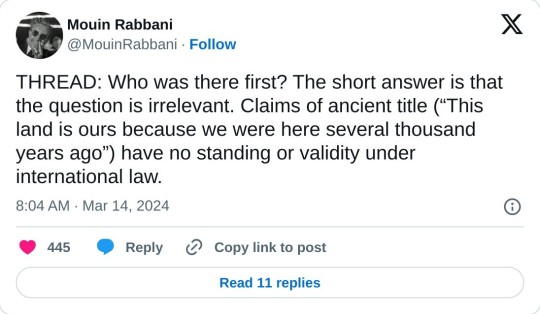
twitter thread by Mouin Rabbani
March 14, 2024
Who was there first? The short answer is that the question is irrelevant. Claims of ancient title (“This land is ours because we were here several thousand years ago”) have no standing or validity under international law.
For good reason, because such claims also defy elementary common sense. Neither I nor anyone reading this post can convincingly substantiate the geographical location of their direct ancestors ten or five or even two thousand years ago.
If we could, the successful completion of the exercise would confer exactly zero property, territorial, or sovereign rights.
As a thought experiment, let’s go back only a few centuries rather than multiple millennia. Do South Africa’s Afrikaners have the right to claim The Netherlands as their homeland, or even qualify for Dutch citizenship, on the basis of their lineage?
Do the descendants of African-Americans who were forcibly removed from West Africa have the right to board a flight in Atlanta, Port-au-Prince, or São Paolo and reclaim their ancestral villages from the current inhabitants, who in all probability arrived only after – perhaps long after – the previous inhabitants were abducted and sold into slavery half a world away?
Do Australians who can trace their roots to convicts who were involuntarily transported Down Under by the British government have a right to return to Britain or Ireland and repossess homes from the present inhabitants even if, with the help of court records, they can identify the exact address inhabited by their forebears? Of course not.
In sharp contrast to, for example, Native Americans or the Maori of New Zealand, none of the above can demonstrate a living connection with the lands to which they would lay claim.
To put it crudely, neither nostalgic attachment nor ancestry, in and of themselves, confer rights of any sort, particularly where such rights have not been asserted over the course of hundreds or thousands of years.
If they did, American English would be the predominant language in large parts of Europe, and Spain would once again be speaking Arabic.
Nevertheless, the claim of ancient title has been and remains central to Zionist assertions of not only Jewish rights in Palestine, but of an exclusive Jewish right to Palestine.
For the sake of argument, let’s examine it. If we put aside religious mythology, the origin of the ancient Israelites is indeed local.
In ancient times it was not unusual for those in conflict with authority or marginalized by it to take to the more secure environment of surrounding hills or mountains, conquer existing settlements or establish new ones, and in the ultimate sign of independence adopt distinct religious practices and generate their own rulers. That the Israelites originated as indigenous Canaanite tribes rather than as fully-fledged monotheistic immigrants or conquerors is more or less the scholarly consensus, buttressed by archeological and other evidence. And buttressed by the absence of evidence for the origin stories more familiar to us.
It is also the scholarly consensus that the Israelites established two kingdoms, Judah and Israel, the former landlocked and covering Jerusalem and regions to the south, the latter (also known as the Northern Kingdom or Samaria) encompassing points north, the Galilee, and parts of contemporary Jordan. Whether these entities were preceded by a United Kingdom that subsequently fractured remains the subject of fierce debate.
What is certain is that the ancient Israelites were never a significant regional power, let alone the superpower of the modern imagination.
There is a reason the great empires of the Middle East emerged in Egypt, Mesopotamia, Persia, and Anatolia – or from outside the region altogether – but never in Palestine.
It simply lacked the population and resource base for power projection. Jerusalem may be the holiest of cities on earth, but for almost the entirety of its existence, including the period in question, it existed as a village, provincial town or small city rather than metropolis.
Judah and Israel, like the neighboring Canaanite and Philistine entities during this period, were for most of their existence vassal states, their fealty and tribute fought over by rival empires – Egyptians, Assyrians, Babylonians, etc. – rather than extracted from others.
Indeed, Israel was destroyed during the eighth century BCE by the Assyrians, who for good measured subordinated Judah to their authority, until it was in the sixth century BCE eliminated by the Babylonians, who had earlier overtaken the Assyrians in a regional power struggle.
The Babylonian Exile was not a wholesale deportation, but rather affected primarily Judah’s elites and their kin. Nor was there a collective return to the homeland when the opportunity arose several decades later after Cyrus the Great defeated Babylon and re-established a smaller Judah as a province of the Persian Achaemenid empire. Indeed, Mesopotamia would remain a key center of Jewish religion and culture for centuries afterwards.
Zionist claims of ancient title conveniently erase the reality that the ancient Israelites were hardly the only inhabitants of ancient Palestine, but rather shared it with Canaanites, Philistines, and others.
The second part of the claim, that the Jewish population was forcibly expelled by the Romans and has for 2,000 years been consumed with the desire to return, is equally problematic.
By the time the Romans conquered Jerusalem during the first century BCE, established Jewish communities were already to be found throughout the Mediterranean world and Middle East – to the extent that a number of scholars have concluded that a majority of Jews already lived in the diaspora by the time the first Roman soldier set foot in Jerusalem.
These communities held a deep attachment to Jerusalem, its Temple, and the lands recounted in the Bible. They identified as diasporic communities, and in many cases may additionally have been able to trace their origins to this or that town or village in the extinguished kingdoms of Israel and Judah. But there is no indication those born and bred in the diaspora across multiple generations considered themselves to be living in temporary exile or considered the territory of the former Israelite kingdoms rather than their lands of birth and residence their natural homeland, any more than Irish-Americans today feel they properly belong in Ireland rather than the United States.
Unlike those taken in captivity to Babylon centuries earlier, there was no impediment to their relocation to or from their ancestral lands, although economic factors appear to have played an important role in the growth of the diaspora.
By contrast, those traveling in the opposite direction appear to have done so, more often than not, for religious reasons, or to be buried in Jerusalem’s sacred soil.
Nations and nationalism did not exist 2,000 years ago.
Nor Zionist propagandists in New York, Paris, and London incessantly proclaiming that for two millennia Jews everywhere have wanted nothing more than to return their homeland, and invariably driving home rather than taking the next flight to Tel Aviv.
Nor insufferably loud Americans declaring, without a hint of irony or self-awareness, the right of the Jewish people to Palestine “because they were there first”.
Back to the Romans, about a century after their arrival a series of Jewish rebellions over the course of several decades, coupled with internecine warfare between various Jewish factions, produced devastating results.
A large proportion of the Jewish population was killed in battle, massacred, sold into slavery, or exiled. Many towns and villages were ransacked, the Temple in Jerusalem destroyed, and Jews barred from entering the city for all but one day a year.
Although a significant Jewish presence remained, primarily in the Galilee, the killings, associated deaths from disease and destitution, and expulsions during the Roman-Jewish wars exacted a calamitous toll.
With the destruction of the Temple Jerusalem became an increasingly spiritual rather than physical center of Jewish life. Jews neither formed a demographic majority in Palestine, nor were the majority of Jews to be found there.
Many of those who remained would in subsequent centuries convert to Christianity or Islam, succumb to massacres during the Crusades, or join the diaspora. On the eve of Zionist colonization locally-born Jews constituted less than five per cent of the total population.
As for the burning desire to return to Zion, there is precious little evidence to substantiate it. There is, for example, no evidence that upon their expulsion from Spain during the late fifteenth century, the Sephardic Jewish community, many of whom were given refuge by the Ottoman Empire that ruled Palestine, made concerted efforts to head for Jerusalem. Rather, most opted for Istanbul and Greece.
Similarly, during the massive migration of Jews fleeing persecution and poverty in Eastern Europe during the nineteenth century, the destinations of choice were the United States and United Kingdom.
Even after the Zionist movement began a concerted campaign to encourage Jewish emigration to Palestine, less than five per cent took up the offer. And while the British are to this day condemned for limiting Jewish immigration to Palestine during the late 1930s, the more pertinent reality is that the vast majority of those fleeing the Nazi menace once again preferred to relocate to the US and UK, but were deprived of these havens because Washington and London firmly slammed their doors shut.
Tellingly, the Jewish Agency for Israel in 2023 reported that of the world’s 15.7 million Jews, 7.2 million – less than half – reside in Israel and the occupied Palestinian territories.
According to the Agency, “The Jewish population numbers refer to persons who define themselves as Jews by religion or otherwise and who do not practice another religion”.
It further notes that if instead of religion one were to apply Israel’s Law of Return, under which any individual with one or more Jewish grandparent is entitled to Israeli citizenship, only 7.2 of 25.5 million eligible individuals (28 per cent) have opted for Zion.
In other words, “Next Year in Jerusalem” was, and largely remains, an aspirational religious incantation rather than political program. For religious Jews, furthermore, it was to result from divine rather than human intervention.
For this reason, many equated Zionism with blasphemy, and until quite recently most Orthodox Jews were either non-Zionist or rejected the ideology altogether.
Returning to the irrelevant issue of ancestry, if there is one population group that can lay a viable claim of direct descent from the ancient Israelites it would be the Samaritans, who have inhabited the area around Mount Gerizim, near the West Bank city of Nablus, without interruption since ancient times.
Palestinian Jews would be next in line, although unlike the Samaritans they interacted more regularly with both other Jewish communities and their gentile neighbors.
Claims of Israelite descent made on behalf of Jewish diaspora communities are much more difficult to sustain. Conversions to and from Judaism, intermarriage with gentiles, absorption in multiple foreign societies, and related phenomena over the course of several thousand years make it a virtual certainty that the vast majority of Jews who arrived in Palestine during the late 19th and first half of the 20th century to reclaim their ancient homeland were in fact the first of their lineage to ever set foot in it.
By way of an admittedly imperfect analogy, most Levantines, Egyptians, Sudanese, and North Africans identify as Arabs, yet the percentage of those who can trace their roots to the tribes of the Arabian Peninsula that conquered their lands during the seventh and eighth centuries is at best rather small.
Ironically, a contemporary Palestinian, particularly in the West Bank and Galilee, is likely to have more Israelite ancestry than a contemporary diaspora Jew.
The Palestinians take their name from the Philistines, one of the so-called Sea Peoples who arrived on the southern coast of Canaan from the Aegean islands, probably Crete, during the late second millennium BCE.
They formed a number of city states, including Gaza, Ashdod, and Ashkelon. Like Judah and Israel they existed primarily as vassals of regional powers, and like them were eventually destroyed by more powerful states as well.
With no record of their extermination or expulsion, the Philistines are presumed to have been absorbed by the Canaanites and thereafter disappear from the historical record.
Sitting at the crossroads between Asia, Africa, and Europe, Palestine was over the centuries repeatedly conquered by empires near and far, absorbing a constant flow of human and cultural influences throughout.
Given its religious significance, pilgrims from around the globe also contributed to making the Palestinian people what they are today.
A common myth is that the Palestinian origin story dates from the Arab-Muslim conquests of the seventh century. In point of fact, the Arabs neither exterminated nor expelled the existing population, and the new rulers never formed a majority of the population.
Rather, and over the course of several centuries, the local population was gradually Arabized, and to a large extent Islamized as well.
So the question as to who was there first can be answered in several ways: “both” and “irrelevant” are equally correct.
Indisputably, the Zionist movement had no right to establish a sovereign state in Palestine on the basis of claims of ancient title, which was and remains its primary justification for doing so.
That it established an exclusivist state that not only rejected any rights for the existing Palestinian population but was from the very outset determined to displace and replace this population was and remains a historical travesty.
That it as a matter of legislation confers automatic citizenship on millions who have no existing connection with the land but denies it to those who were born there and expelled from it, solely on the basis of their identity, would appear to be the very definition of apartheid.
The above notwithstanding, and while the Zionist claim of exclusive Israeli sovereignty in Palestine remains illegitimate, there are today several million Israelis who cannot be simply wished away.
A path to co-existence will need to be found, even as the genocidal nature of the Israeli state, and increasingly of Israeli society as well, makes the endeavor increasingly complicated.
The question, thrown into sharp relief by Israel’s genocidal onslaught on the Palestinian population of the Gaza Strip, is whether co-existence with Israeli society can be achieved without first dismantling the Israeli state and its ruling institutions.
257 notes
·
View notes
Text
Here's a refined breakdown of how I envision Stephanie Brown's style, a character whose perception is largely shaped by the male gaze;

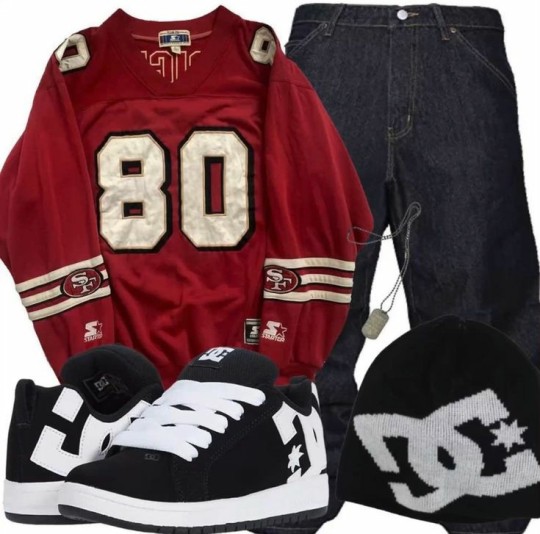
While she's comfortable wearing feminine attire, her ultimate aesthetic leans towards more of a Adam Sandler-esque vibe. Her fashion sense, similar to Duke's in many ways, differs significantly from Tim and Bruce's habit of quiet luxury. Her gamine face and all American girl look creates an interesting dichotomy with the way she dresses. There's also a notable juxtaposition between how she navigates high society in comparison to Jason. Whereas the latter used to strive towards acceptance within Bruce's elite circle, Stephanie– and sometimes even Duke, when he feels like being a troublemaker– seeks rejection. She wears oversized men suits to black tie events to emphasize her different background. She leans more into it then– if only to make a point.


To touch back onto my understanding of the class dynamics at play within the Wayne family and how it reflects back on their personal style , I think there are five key-points to talk about– Upbringing, class, gender, race and generation.
Tim, Bruce, and Damian fall into a similar category, having been raised as wealthy boys in a racially homogeneous environment with privileged access to private education. Tim possesses a deeper awareness of his privileged worldview compared to Damian, who is more detached from poverty. Dick occupies a unique position due to his early adoption into the affluent world and his background as the son of performers, which cultivated his charm and adaptability. He seamlessly integrates into high society, drawing from his upbringing. Stephanie, Cassandra, Jason, and Duke, however, have experienced more time in lower-class environments than in financial stability, forming their own distinct circle. They share a mutual understanding rooted in shared experiences, vernacular accents, inside jokes, and nuanced awareness of class dynamics and microaggressions, which sometimes excludes the other group.


When Tim adopts a more casual, Gen-Z skater-boy persona outside of Wayne Enterprises' strict business casual environment, the second group sometimes call him a poser due to the African American roots of the skater style, which emerged in opposition to everything Tim represents– is. While they may be perceived as the "cool kids" within the house– and at school–, they are more protective of one another than malicious towards others, guarding their identity and personal struggles fiercely as an act of revendication.
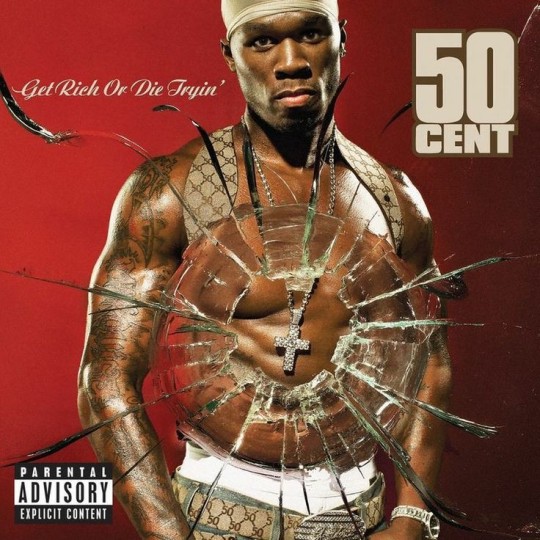
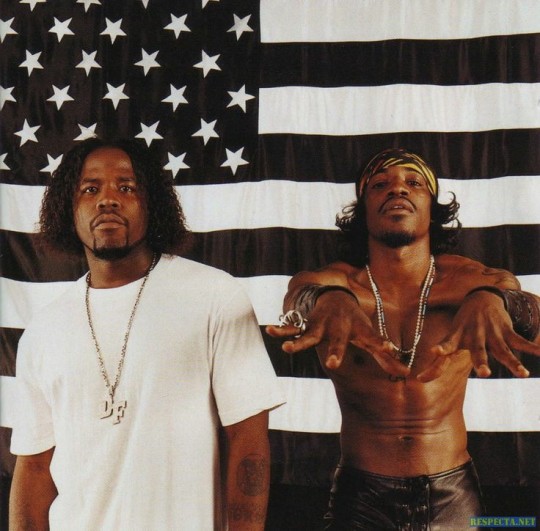
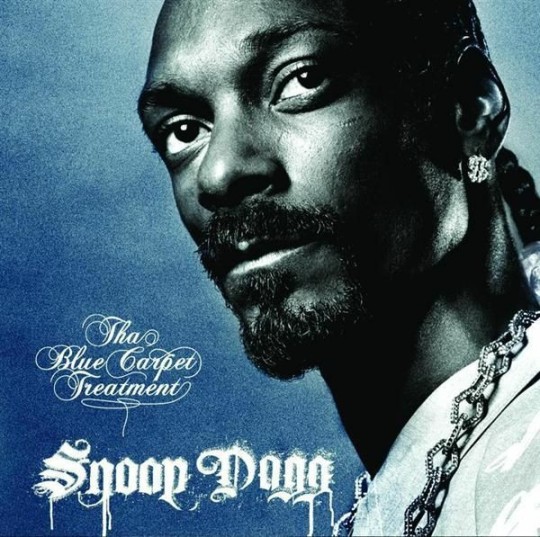
She mainly listens to 90's and early 2000's rap music and blasts "Poor Lil rich" by 50 cent whenever she has a fight with Bruce or Tim.
#kinda ooc but my version is better#Fuck canon#listen to me#stephanie brown#duke thomas#Steph and Duke are platonic soulmates#batman comics#batfam#jason todd#batman#signal#tim drake#dick grayson#damian wayne
125 notes
·
View notes
Text
White people are allowed to use appeals to 'trauma' to defend and explain their (and other white people's) behaviour—including racist behaviour—in ways that people of colour are not. 'Trauma' in this formulation (that is, a mitigating circumstance that can be appealed to—not just to explain and excuse whatever behaviour—but to make that behaviour appear healthful and beneficial on an individual or societal level)—this kind of 'trauma' is something that only white people can possess.
People of colour—in a usamerican context we ought to be talking primarily about Indigenous & African americans—are not subjects or people who can be traumatised. True, they're not thought of as people whose trauma matters—but, more than this, they're not thought of as having the kind of mind that can be traumatised in the first place.
They don't have the kind of mind that can suffer and then 'heal' from 'trauma'—a mind at its core healthy and sanitary, but corruptible—a mind flexible enough to rejuvenate or regenerate itself. Regenerating potential, complex individual psychology, a 'clean' state prior to trauma that can be corrupted and ought to be protected from corruption—these things belong to whiteness alone.
These are the aspects of whiteness that make an appeal to corrupted white childhood especially powerful for reactionary and progressive people alike. The white child is in the ultimate state of innocent, fragile purity and simultaneous elastic rigour. The white child's purity must not be challenged or complicated (thus ideas such as 'white children ought to be shielded from the realities of racism which their peers of colour are presumably already dealing with')—but white people can, once corrupted, still become productive citizens of a healthy national body politic, given sufficient attention to the 'recovery' of that previous un-traumatised state.
This 'recovery' employs discourses of medicine and psychology as sanitation and the (white) mind both as originally pure and robust, and as recoverable and regenerative enough to re-attain that original state. These discourses also posit that white psychological recovery serves a national function. The converse is also true; marginalised white people's attempts to address their marginalisation frequently invoke nationalist imagery and nationalist myth-making (in shoring up a sense of personal identity as a white member of the nation; in claiming the 'right' as a white member of the nation not to be marginalised or oppressed).
So Indigenous & African americans cannot be traumatised. they can be foreign (yeah, foreign, however counterintuitive it sounds) antagonists and villains, collective hoards, drains on resources, sources of labour, the tragic dead, or tragic victims, but even in the more apparently sympathetic of these formulations they are not psychologically individual or complex enough to be traumatised as people. They especially cannot be thought of as traumatisable or regenerative as populations, since that would entail an acknowledgement of usamerican colonial wrongdoing and the admission of a possible future not predicated on white hegemony.
If they are 'traumatised' populations it is a kind of trauma that is tragic but irrecoverable, or else self-imposed and self-perpetuated; they don't have a mind, an individual, psychologically complex mind, the kind of mind whose individual experiences matter and ought all to be taken into account and sympathised with in understanding behaviour, the kind of mind that justifies and necessitates any action taken in order to maintain its hygiene. Their minds are neither originally 'pure' (such that they must be protected from trauma) nor robust and elastic enough to recover (such that they can ever really be healthy members of the us national / political body).
An appeal to white trauma, and especially to white childhood trauma, is just sort of a sympathy magic bullet that the stars rarely align enough to allow a person of colour to discursively counter ime. "Colonialism, slavery, and encountering racism traumatise people" is not admissible evidence to these people. The white person engaging in racist behaviour can be excused and pitied—even have their behaviour be thought of as healthful and beneficial—on the basis of their trauma. To the extent that people of colour are harmed by this behaviour, it simply doesn't matter.
218 notes
·
View notes
Text
ok for some tangential reason i was analyzing our character's fave wines tonight and welp here we go keep in mind this went through a VERY rigorous peer review process (the academic court of my opinion) so this should be 100% accurate.
jack and maddie both drink chardonnay, but jack likes his oaked and maddie likes hers unoaked. sorry but neither of them drink enough wine to have any preferences beyond this point
jazz: pinot grigio, easy. i feel like this whole family's a white wine family
danny: he's also a chardonnay bitch. he likes his mom's faves better but doesn't know why cuz he doesn't even know what "oaked vs unoaked" means. all he knows is that he doesn't like the taste of alcohol and unoaked chard tastes the most like water and that's why he'll drink it.
vladdy: he's a wine snob who drinks anything expensive (and pretends he can taste the difference between South African and French wines as if they're not both dry) but his fave is a dry cab. when he's out eating dinner with his business associates, he pretends to love those natural earthy wines, but he secretly almost always wishes he was drinking his basic (expensive) bottle of cab.
sam: pinot noir. she probs enjoys a good cab here and there tho
tucker: prosecco. obviously.
paulina and star: rosé girlies! star genuinely likes rosé the best (sparkling for her!), but paulina doesn't really care and only prefers it because it looks the cutest. she also has these adorable little wine glasses she got on a beach vacation she drinks it out of. sorry i dont make the rules.
dash: a sav blanc bitch but he won't admit it. wine is "for girls" and he only drinks beer in front of the other guys. meanwhile, kwan's enjoying his bubbly rosé with star in the corner.
lancer: depends on the season and what food he's pairing it with. if it's winter, he drinks more chianti and pinot noir, and if it's summer, he drinks more chard and pinot grigio. but i think ultimately, he prefers the pinot grigio.
ok that's all i got. hope this was an educational experience for u. 🙏
#danny phantom#quality content#wine pairings#glad to put my years of waitressing to use in the form of phandom shenanigans#headcanon
63 notes
·
View notes
Text
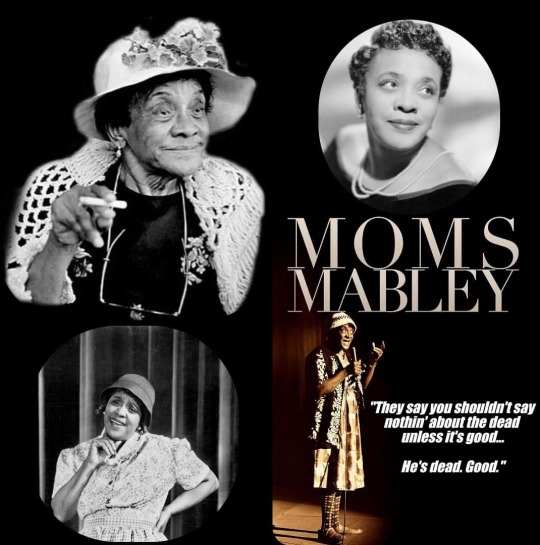
FIRST SUCCESSFUL FEMALE STANDUP COMEDIAN
Loretta Mary Aiken (March 19, 1897 – May 23, 1975), known by her stage name Jackie "Moms" Mabley, was the first successful female standup comedian and had a career that spanned over 50 years. Moms bridged the gap between vaudeville and modern stand up comedy. She was also the first woman comic to be feature at the Apollo theater and Carnegie Hall in 1962.
Moms Mabley was born Loretta Mary Aiken in Brevard, North Carolina, to a large family. She experienced a horrifying, traumatic childhood. Her firefighter father was killed in an explosion when she was 11 and her mother was later hit and killed by a truck on Christmas Day. By the time she was fifteen she had borne two children resulting from sexual assaults: the first by a neighbour when she was twelve, and the second, two years later by a local sheriff. Her stepfather, who had remained her guardian, gave both children up for adoption and then forced Moms to marry a much older man who she despised.
Aiken left home at the age of 14 and pursued a show business career, joining the African-American vaudeville circuit(aka Chitlin' Circuit)as a comedian under the Theatre Owners Booking Association, Fellow performer Jack Mabley became her boyfriend for a short time, and she took on his name, becoming Jackie Mabley, with "Moms" coming from her eventual reputation as a mentoring, mothering spirit.
Moms saw an opportunity to try out her own voice, and discovered that she was a natural at singing, dancing and telling a joke. Especially telling a joke. She realized she had something that many of her contemporaries didn’t - original material. Since her sheltered life had hampered any introduction to current comedy routines, Moms inevitably began to craft authentic pieces based on her own experiences, much of it based on Granny’s pearls of wisdom.
Moms talked to her audience as if they were her children. She delivered superbly solemn routines, original in their time yet amazingly, never bettered. As soon as Moms delivered her opening line “I 'gots' something to tell you...” she immediately captured the attention of everyone in the room - and those rooms were full for over fifty years.
By the early 1920s she had begun to work with the duo Butterbeans & Susie, and eventually became an attraction at the Cotton Club. Mabley entered the world of film and stage as well, working with writer Zora Neale Hurston on the 1931 Broadway show "Fast and Furious: A Colored Revue in 37 Scenes" and taking on a featured role in Paul Robeson's "Emperor Jones" (1933).
Starting in the late 1930s, Mabley became the first woman comedian to be featured at the Apollo, going on to appear on the theater's stage more times than any other performer. She returned to the big screen as well with "The Big Timers" (1945), "Boarding House Blues" (1948), and the musical revue "Killer Diller" (1948), which featured Nat King Cole and Butterfly McQueen.
By the late 1950s Moms Mabley was one of the highest-paid comics in the US, making $10,000 a week. Mabley's standup routines were riotous affairs augmented by the aesthetic she presented as being an older, housedress-clad figure who provided sly commentary on racial bigotry to African-American audiences. Her jokes also pointed towards a lusty zest for younger men.
Mabley began a recording career with her Chess Records debut album "The Funniest Woman Alive," which became gold-certified. Subsequent albums like "Moms Mabley at the Playboy Club," "Moms Mabley at the UN" and "Young Men, Si - Old Men, No" continued to broaden Mabley's reach (she ultimately recorded many albums). She landed spots on some of the top variety shows of the day, including "The Ed Sullivan Show," and graced the stage of Carnegie Hall.
Mabley continued performing in the 1970s. In 1971, she appeared on The Pearl Bailey Show. Later that year, she opened for Ike & Tina Turner at the Greek Theatre and sang a tribute to Louis Armstrong as part of her set.
Mobley had a starring role in the 1974 picture "Amazing Grace," which she was able to complete despite having a heart attack during filming.
Over the course of her life, Mabley had six children: Bonnie, Christine, Charles, and Yvonne Ailey, and two placed for adoption when she was a teenager. She died from heart failure on May 23, 1975, in White Plains, New York.
Actress Clarice Taylor, who portrayed Bill Cosby's mother on "The Cosby Show" and was a major fan of Mabley's work, staged the 1987 play "Moms at the Astor Place Theater, in which she portrayed the trailblazing icon.
Fellow comedian Whoopi Goldberg made her directorial debut with the documentary "Moms Mabley: I Got Somethin' to Tell You, which was presented at the Tribeca Film Festival and aired on HBO in 2013.
#black history month#black history#comdey#comedian#Loretta Mary Aiken#carnegie hall#vaudeville#Jackie Moms Mabley
18 notes
·
View notes
Text

So excited to announce the launch of my project [unhurried] {witness}!
A curation of digital memories, this piece was created under my mentor, Marisa Parham, during the 2022-2023 Scholar-Artist Residency Program of the African American History, Culture, and Digital Humanities (AADHum) Initiative at the University of Maryland (UMD).
[unhurried] {witness} was conceived during lockdown to explore Black play as a form of healing and collective witness of Black American culture, and was envisioned as MySpace meets Tumblr meets your Grandma’s house; ASMR for the soul; community memory exercise; interfacing intimacy; an archive of play; and, ultimately, an ephemeral object of cultural witness.
✨slow play as ritual/alchemization of emotions + analog experiences in a digital space✨
More inspirations included:
-web 1.0
-Covid play
-inside/outside
-adulthood/childhood
-play/work
To experience and explore the project, click here: https://unhurried-witness.aadhum.org.
Designed to be interactive, a series of questions on your memories of the digital experience can be found here and here. All answers will be recorded anonymously and displayed in the guestbook here.
Statement from the African American History, Culture, and Digital Humanities Initiative at University of Maryland on the project:
Welcome [unhurried] {witness}!
Seren Sensei’s #BlackDH project creates a “a digital exploration and a visual representation of analog games such as card games, dice, dominoes, paper crafts, and rhyming hand games/hand motions, as healing cultural process among Black Americans.”
✨ You can learn more about [unhurried] {witness} at https://aadhum-news.umd.edu/unhurried-witness/
✨ You can visit the site at https://unhurried-witness.aadhum.org
#black american#culture#university of maryland#African American History#digital humanities#my work#digital#analog#memories
33 notes
·
View notes
Text
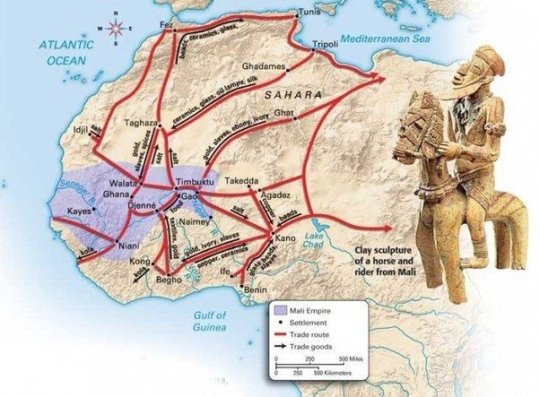
What do great civilizations have in common?
"What common attributes do great civilizations share? They typically possess access to both local and global markets, the capacity to attract a diverse population eager to settle for the purposes of commerce and education, accepting influence and reflecting influence, I will use African examples, but this is true the world over.
There was a saying "To cure mange for a camel, use bitumen; to cure poverty, go to the Sudan." this was said at the time of the Wagadu or Ghana empire when great trading trains were crisscrossing the Sahara, both the Wagdau and Gao were mentioned as the richest kingdoms in the world and their Kings the most wealthiest beyond compare, this was hundreds of yrs before the now famous Mansa Musa of Mali, it’s ultimate successor.
These conceptions do not need to extend outside the continent although the more extensive the better, example.
These connections between West and West-Central Africa to the world are anathema to historical traditions in which ‘Africa” s isolation from the rest of the world, before contact began with Europeans, is assumed. But they emerge from a number of factors. As the historian Jan Vansina showed, similar techniques in wood-carving found from Yorùbá regions as far south as Loango suggest shared techniques and exchanges. Seventeenth- and eighteenth-century carvings from the Kuba kingdoms depict the playing of warri, a game found widely further north in West Africa, as well as in East Africa.
Other evidence suggests that these exchanges then interconnected with the long-distance routes linked to the Sahara – and these patterns may in turn have influenced how the Kongolese reacted when the Portuguese first arrived in the 1480s.
Kongo’s connection to long-distance trade routes is the only logical explanation for how sugarcane – long cultivated in the eastern Mediterranean and in the Arab worlds – grew in Kongo before the Portuguese arrival.
Long-distance trade can also help to explain the use of a shell currency in Kongo (the nzimbu), for the use of the nzimbu surely was not unrelated to the experience of the use of the cowrie-shell currency in West Africa and the Sahel; the Kalahari regions to the south were connected to the Indian Ocean trade by perhaps the ninth or tenth century, and cowries may have been involved in this trade – which offered a route for this influence to spread to Kongo addition, there seems to have been an important spiritual dimension that connected the forest Kingdom of Kongo with that of Benin to the north, for it is noteworthy that both Edo and Kongo peoples (and, indeed, peoples of the Kingdom of Ndongo in northern Angola) used diamond-shaped crosses as a religious symbol prior to the arrival of the Portuguese. In Kongo, the ‘cosmogram’ connected the worlds of the living and the dead, and was used widely on textiles and bowls used for daily life, as well as later in Christian art.
The use of the cross as a religious symbol among the Edo also suggests some cultural and perhaps commercial connection between Edo and Kongo peoples, as does the shared use of shell currencies, similar wood-carving techniques and the presence of sugarcane in Kongo, since all had likewise existed in Benin prior to the Portuguese arrival.
Yet how did these connections develop, in a region famous for its thick forests and swamps? As we have seen in other parts of the continent, rivers and seaways were roads. Many peoples along the coasts of West-Central Africa were good boat-builders, with the Vili of Loango remarked upon as such by the Portuguese in the sixteenth century. There were fishing groups to be found everywhere, and their skill in making seagoing ships is shown by the presence of Bubi peoples on the Island of Bioko by the time the Portuguese arrived in the fifteenth century.
But The idea that Europeans ‘brought’ seafaring to Africa must also, therefore, be challenged. Thus, it was most likely through African navigators that related religious and aesthetic practices grew up; and when the manikongo Afonso I wrote in 1526 of a number of traders from Benin resident in the Kongolese port of Mpinda, it is possible that they found their way there in local embarkations rather than through Portuguese networks.
The Kongo ‘cosmogram’ Kongo may not, therefore, have been as isolated from other parts of West Africa as has hitherto been supposed.
From the book A Fist Full Of Shells, By Toby Green
#african#afrakan#kemetic dreams#africans#afrakans#brown skin#brownskin#african culture#ghana#mpinda#kongolese#kongo#europeans#great countries#ancient civilizations#civilization#great civilization#afonso#benin#edo#sahara#mansa musa#wagdu#sudan#ta seti#north africa#a fist full of shells#toby green#west africa#mali
37 notes
·
View notes
Note
I found your Cyrus ask/post and really liked anon’s and your thoughts on it
Going onto my own projections lol, I always thought Cyno’s story parallels immigrants to an extent. He’s a desert dweller, but he’s basically been raised in the Akademiya. He’s Othered there because of the prejudices against the desert, but he’s Othered in the desert too due to being the General Mahamatra. He knows the desert, but from what I remember it’s implied (I think since the Sumeru archon quest?) he doesn’t quite know it as much those who actually live there, like Candace
One admirable trait of Cyrus at least is that he has a soft spot for children, and we see that when he’s willing to pretty much drop the case of the threat letter once he finds out it’s a 16-year-old responsible
So I think your take is very consistent of what we already know of Cyrus. Arguably, it’s still not the best outcome, because good intentions doesn’t mean it’s for the best. I honestly think he felt responsible for Cyno, as someone who was involved in implanting the fragment in him and seeing how it resulted in his sickliness. I also think seeing Cyno suffer was possibly half the reason why he ended the experiment and took him with him
But that’s me giving him the benefit of the doubt. Cyrus himself admits at the end of the SQ that he’s “not a good person” and that Cyno has reason to hate him. Like you said, he doesn’t give his reasons, so we’re left to basically guessing his thoughts that ultimately he’s a pretty enigmatic character. It doesn’t help that he’s not the most honest about them. He seems to be pretty emotionally-constipated and very avoidant in fact, and that bites him in the ass when he tells Cyno about Hermanubis but is not willing to get into any depth. Cyno even calls him out a little by the end of the SQ, when he clearly wants to talk to Cyno about something but ends up giving him “non-answers”, so he’s definitely not perfect
Either way, to that anon: you’re valid if u don’t like him. I was a little surprised at how much MHY went into Cyrus’ character, making him flawed enough to be justifiably disliked. It’s not something I expected from a NPC, but it’s a good direction from a story-telling standpoint (in that, I can see how this can be set up for conflict, but that’s my angst fanfic-loving heart lol cuz I doubt MHY will release a third SQ)
I'm glad you liked it! Here is the post referenced.
Cyno very much feels like somebody adopted outside of his culture (same with Kaeya), and he shares a lot with immigrants as well since the desert is basically treated as a seperate nation. He reminds me a lot of people who adopt children from Kenya or China (or other African & Asian countries), or indigenous children adopted outside of their communities, and then their roots are ignored and they're treated as the same as their family, even though they aren't.
I don't think there's any parents, adopted or otherwise, we know of in Genshin who are the idealisitic perfect parents. Kaeya's birth family is its own tangle, Crepus instilled a hero complex so strongly into Diluc that Diluc is now embittered and angry, Jean and Barbara's parents split up abd each took a kid (I mean seriously, what the fuck?), Kaveh's mother had severe depression and left him behind to build a life in Fontaine, Arlecchino is a mess for the Hearth children, Alice isn't the worst but she still left Klee for literally years, Dehya's father was a bandit, Diona's is an alcoholic, Kojou Sara's is a traitor, Wriothesley, Shenhe- you get the point. (Fischl, Bennet, and Yoimiya's parents are admittedly pretty good.)
Genshin has no problem giving us characters with complicated parental relationships. It's nice that we get to see Cyno still associating with Cyrus when so many other characters are estranged.
Cyno definitely deserves some straight answers though, and I think he'd get them eventually. Give it a few days to cool down and then go sit with Cyrus, listen to some tomato rants, and ask hos questions.
I'm too much of a baby to write or read arguments between Cyno and Cyrus 😭
16 notes
·
View notes
Note
What has your experience as a black man in South London been like for you?
rah what a question.
good and bad I suppose. i'm going to write subconsciously from feeling so sorry if this ain't articulated well. the great is culture, black britishness has grown to become a fusion of African and Carribean influence over time which is cool, ranging from music, theatre, rave scene to art, and how we speak so there is community in that aspect. I feel social media has divided a lot of us, and I think we are not supposed to know the thoughts of anyone and everyone the way in which we do, but that's today's world I suppose. there is solidarity amongst us but I feel it could be much better, because we are all in a similar fight. where I've grown up in south there are a lot of black people so that helps.
the bad is how we are perceived. I don't like making eye contact with police officers so that's one thing but on the whole for me it's been okay. a few bad experiences but hey ho, that's life as a black person. I hate it and we fight against it more time. it's hard to speak on an existence/experience that maybe I have grown to accept? I'm proud of our resilience, and how we articulate our experiences thru various means. I'm also happy that we are represented a lot more in music and tv, that gives outsiders a greater understanding of the black british experience. I grew up in an estate but then moved to an area not far with better living conditions so I'm a lucky one.
blackness has become cooler here, but your experience ultimately depends on where you grow up. i'm sure if grew up somewhere like kent or suttin, I'd be saying something completely different. so I'm thankful I went to a school and grew up in an area where there are kin alike. my only gripe is that I am of the firm opinion that platforms like twitter and insta are doing us more harm than good, and I wish much better for us. but I love being black and from south, I wouldn't have it any other way
12 notes
·
View notes
Text
[“We struggled to explore why we aren’t supposed to talk about sex in academia. We agreed that the glossed-over, vague clinical teachings about the importance of emotional intimacy, and the insistent linking of all healthy sexual expression with emotional intimacy, is a part of the same shaming of sexual desire and agency that leads clients—especially women and queer clients—to our offices.
Ultimately the dean supported my curriculum and my explicit conversations about sex and sex practices in my classroom, but with one caveat: text and some photography only. No pornography in the classroom.
Most of the text I teach to my students isn’t writing that’s coming out of the field of clinical psychology. It’s from queer theorists, sex educators, self-identified sex radicals, AIDS activists, and sex workers who are interrogating issues of cultural (mis)appropriations and shame. So even without showing pornography in my classroom, there was always enough sexually explicit material to talk about. Or so I thought.
Students started reporting in class about their experiences in their clinical internships. As when I was an intern, many training clinics, where the majority of supervisory staff or clinicians are heterosexual, have a tendency to assign all of the queer clients to the queer clinicians, regardless of gender expression or sex practices. The result looks something like this: dyke interns unfamiliar with gay male sexual expressions find themselves as new therapists sitting with gay male clients struggling with questions of safer sex and HIV risk. White gay men who don’t know about the spectrum of possible trans bodies find themselves needing to talk about hormones and packing cocks with African-American, genderqueer FTMs.
It isn’t that I expect my students to become experts in all forms of sexual and gender expression, but I do hope for them—and expect of them—that they become familiar enough, educated enough, and nonreactive enough to treat clients with respect and curiosity about their experiences and how they understand them, instead of needing their clients to educate them.
I assure my students that we all have ideas about sexualities and sexual practices that we have aversions to, don’t know anything about, or are simply not interested in, but that when we think about our clinical work, our own interest isn’t the point. I then tell them to go rent pornography and watch as many videos as it takes to learn five new things, and then do it again. Not necessarily sex acts or positions—though certainly those are learned—but more complicated representations and enactments of desire and power. This isn’t an exercise in converting them to any particular kind of sex practice; it is however, about broadening their ideas about sex practices and desires so that when clients come in who are often socialized to feel shame about their desires, their therapists won’t further shame them. We need to learn to be present with our clients’ experiences and desires, and to be curious about them without leading to the activation of our own fears or uncertainties.”]
keiko lane, from Imag(in)ing Possibilities: The Psychotherapeutic Potential of Queer Pornography, from the feminist porn book: the politics of producing pleasure, edited by tristan taormino, constance henley, and celine perreñas shimizu, 2013
251 notes
·
View notes